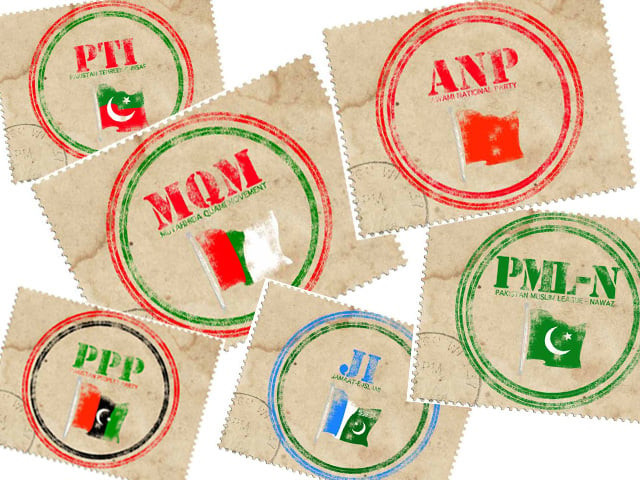Report on political parties: ‘It’s not all bad news on democracy’
Devolution to districts key to developing strong democracy, say PML-N, MQM reps.

Pakistan has major problems with its system of governance, but there have also been many positive developments in recent years that have strengthened democracy in the country, said MNA Ahsan Iqbal of the Pakistan Muslim League-Nawaz on Wednesday.
“There is no need to get carried away with negativity,” said Iqbal, who was speaking after the launch of a report on political parties in Pakistan and their organisation. The report was compiled by a researcher of the Lahore University of Management Sciences and launched in collaboration with The Asia Foundation.
Iqbal said Pakistan faced a deteriorating law and order situation and a poor economy saddled with inefficient public institutions like the national airlines and railways. But it also had an active media, an independent judiciary and increasing citizen participation. “Some people have problems with the judicial activism, but you can’t deny that an independent judiciary is emerging in the country,” he said.
He said the 18th Amendment, which devolved authority over several subjects from the federal level to the provincial level, was a step in the right direction, but further de-centralisation was needed. “Devolution from the provinces to the districts will be a new challenge,” he said.
The MNA said that there was a disconnect between the educated middle class and the political process because of cynicism about the effectiveness of the democratic system and the motives of politicians. He said that the report spoke harshly about the mechanisms for decision-making and policy-making in his party.
Feudalism
“The biggest curse for the democratic process in the country is the medieval feudal system which is rotting the political set-up,” said Sindh Minister for Information Technology Raza Haroon, who is a member of the Muttahida Qaumi Movement. “We are unable to raise our voices against the feudal system which is eating into the foundations of our society. We know that it is wrong but we don’t do anything to abolish it.”
Haroon said that politics in Pakistan was based more on personalities than parties. The Jamaat-i-Islami and the MQM, he said, were the only parties that won votes because of their policies rather than because of the popularity or influence of specific individuals.
He said while Pakistan had suffered extended periods of military dictatorship, even the brief democratic periods “represented nothing more than a civilian form of dictatorship”. He too stressed the need for a system of local administrations to improve governance.
The minister said that the report’s reference to his party as a coalition partner of the government was misleading as the party made its decisions independently. He said there were some factual errors in the report which he would elucidate to the researchers.
Representation
Journalist Najam Sethi noted the absence of Federal Information Minister Qamar Zaman Kaira and Senator Mushahid Hussain of the PML-Quaid, who were scheduled to participate in the discussion, as well as the lack of a Pakistan Tehreek-i-Insaf representative.
He said that the report was a “severe indictment of political parties”. He said while the report focused on the organisational and power structures within parties, he would have liked to see analysis of these parties’ relevance to certain current issues.
“Pakistan will find itself in a very difficult situation if it continues in the same direction,” he said, adding that political parties showed no intention of tackling the most pressing issues troubling the country.
He said there was a need for debate on the army’s role and how various parties had, at one point or the other, “scratched the army’s back”. He said most political parties were run as dynasties.
Former National Assembly speaker Fakhar Imam, who chaired the discussion, questioned whether real power lay with parliament and whether there was a disconnect between the people and their elected representatives. He urged the need to address the Balochistan issue.
He said that the limiting of democracy in Pakistan had resulted in a lack of experience among political actors. He called for conflict of interest legislation that would prevent politicians taking advantage of their power for financial gain.
Published in The Express Tribune, November 15th, 2012.



















COMMENTS
Comments are moderated and generally will be posted if they are on-topic and not abusive.
For more information, please see our Comments FAQ